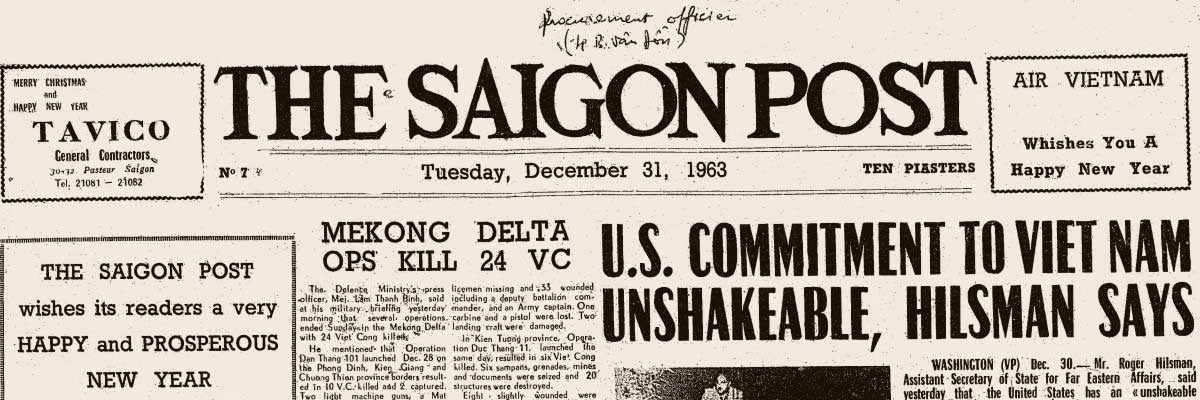The Center for Research Libraries supports and facilitates the use of primary sources in the classroom for both undergraduate and graduate studies.
When Matthew David Johnson, assistant professor of East Asian history at Grinnell College, decided to retool a course on 20th-century history and propaganda by making it more Asia-focused, he turned to CRL, thanks to a referral from Catherine Rod, special collections librarian and archivist at Grinnell’s Burling Library.
Professor Johnson’s spring 2012 course, “Propaganda! Political Persuasion and Communication in the Modern World,” focused on propaganda and the interests and agendas behind it during the Vietnam War from both Asian and U.S. sides. Sources included English-language newspapers produced in Vietnam and defense-related studies from the U.S., which provided “a sense of the landscape on the ground, as history not only shaped by leaders, but also by what ordinary people think,” Johnson described. “Newspapers especially give us an idea of how propaganda messages were received.”
After corresponding with CRL’s Member Liaison and Outreach Services Director Mary Wilke, Professor Johnson felt confident that he’d have the primary sources he needed. “When I designed the course I got in touch early and began working with the knowledgeable CRL staff and getting a terrific level of support. Mary Wilke got back to me with a list of holdings related to Vietnam. She was able to point out the publications that were English-language, the ones that were from North Vietnam or South Vietnam, etc.”
“With the newspapers,” Williams continued, “we had to have a dialogue about the context, and it was a dialogue that lasted all semester. CRL was also involved in the dialogue,” Johnson explained. Student papers involved many aspects of the Vietnam War, and produced a substantial body of evidence suggesting that the effects of the war were transnational as well as international. “Within a broader historiographical context, the papers might well be read as a contribution to research on the networks and patterns of influence which contributed to the global-ness of the ‘global 1960s.’ Presented as a whole, they make a persuasive case for the role which basic research can play in uncovering underappreciated connections between instances of social upheaval taking place in far-flung parts of the globe.”
When asked about the impact of access to primary resources for undergraduate students, Johnson stressed, “It’s important for students to have the opportunity to engage in advanced study, whether they go on to do more advanced degrees or not. Working with primary sources prepares them for a world in which evidence-based information is becoming more and more important both in their personal and professional lives.” This was the first time Johnson had worked with CRL. “For somebody who is engaged in research and teaching undergrads about research, having CRL as a shared resource for a school of Grinnell’s size, is really fantastic. It was a first-rate experience.”
